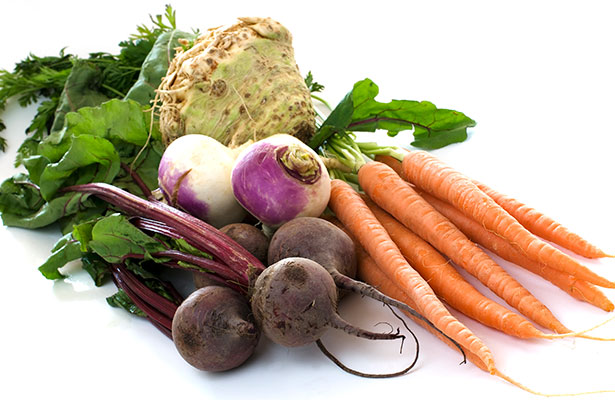
Winter vegetables are harvested late in the season and don’t spoil or rot easily. Some of the best produce to purchase in the winter includes root vegetables, such as potatoes, turnips, parsnips, carrots, and beets; allium vegetables such as onions, garlic, and shallots; cruciferous vegetables such as cabbage, Brussels sprouts, broccoli, and cauliflower; hardy greens, including kale, spinach, and chard; and winter squash and pumpkins. Based on this list there are plenty of fresh vegetable options to include all winter long. If you’re not sure where to start, give these veggies a try:
- Brussels Sprouts: Can be prepared by cut, halved and roasted until caramelized and crispy, shredded to add to salads, or add them to stir-fries.
- Cabbage: Shred cabbage for slaw, sandwiches, wraps, or tacos, add to casseroles such as stuffed cabbage or slow cooker cabbage soups and stews. An additional way to include cabbage is by having fermented cabbage (sauerkraut) in casseroles, sandwiches, or as a side dish.
- Parsnips: A versatile vegetable that has less starch than a potato. Prepare them by roasting, baking, pureeing into a mash, or using them in place of potatoes and carrots in any recipe. Parsnips can also be consumed raw by grating or cutting into matchsticks for salads.
- Winter Squash: These include acorn, butternut, and spaghetti squash. The hard outer shell means winter squash can be stored for long periods of time. Try roasting, sautéing, or mashing for main or side dishes.
Looking for tips on how to prepare a new winter vegetable? Give me a call at 319-297-8637 or stop by my office in the Woodlands.
Brooke Hershberger, Meth-Wick Staff Dietitian